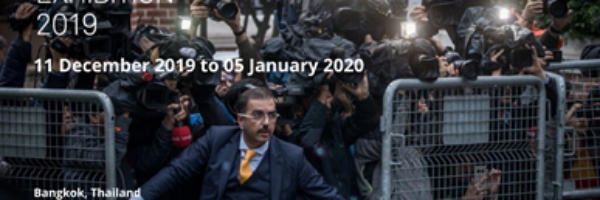
I know a change gonna come, oh yes it will
When I was a child, we were taught the proper techniques of duck and cover. We were raised to believe that there was an enemy that wanted to annihilate us and end our free way of life. We were Americans and Russia and China were our sworn enemies (even though they were both our allies in WWII). Plain and simple, we were told that we couldn’t trust them. We believed that they wanted us dead. To maintain this belief, we were kept in a constant state of fear of nuclear proliferation. As I got older I came to realise that there are two sides to every argument. For the most part, it’s a matter of perspective. I followed in my father’s footsteps and decided to go to law school. Also having studied philosophy, I came to learn that, not only are there different perspectives of issues – with every perspective is another element of balance. Learning to think in the abstract helped me to see life more as a relativist and less as an absolutist. Some things I know are absolute, such as death, taxes, and math. Other things are relative, such as attitudes and beliefs.
I was about to cross a street in San Francisco one day and I all of a sudden felt someone grab the back of my sweater and violently jerked me back. All of a sudden a city bus pulled up where I was about to step. I looked around and I couldn’t tell who had just saved my life. Everybody was clambering to board the bus. After that experience, I stopped worrying about my life coming to end as the result of nuclear war. I realised that just crossing the street presented a higher risk of becoming instantly obliterated. As I studied California law I became more acquainted with the American judicial system, which derived from English law, which derived from Roman law. I know now that we have a system of international law that tends to keep the world in balance. Since the development of the United Nations Convention on the International Sales of Goods (CISG), the threat of global war is now taking a back seat to that of self- imposed socioeconomic threats. I previously believed that Big Business, Big Government, Big Pharma, and Big Education were collectively becoming the breaking point for society as we know it. As I’ve aged, I’ve come to realise that there is a natural balance that is independent of mankind.
 Big Business is now international and they can point out that they at least have some justification as their number one objective, although not their sole objective, is to maximise profits for their shareholders. Those shareholders are individuals, corporations, and governments who depend on their investments to make profits. Those profits are also what keeps our economy moving. Big Government bureaucrats can truthfully argue that the more the population increases, the more need for more governance, which means more laws, more regulation, more oversight, more enforcement, more need for internal and external security. With all of this being the reality of the way the world works, it becomes even more difficult to challenge their collective motives warranting higher salaries, retirement programs, and Cadillac healthcare plans. Bureaucrats often challenge objections to their perks by pointing out that they could make more money and get better benefits in the private sector.
Big Business is now international and they can point out that they at least have some justification as their number one objective, although not their sole objective, is to maximise profits for their shareholders. Those shareholders are individuals, corporations, and governments who depend on their investments to make profits. Those profits are also what keeps our economy moving. Big Government bureaucrats can truthfully argue that the more the population increases, the more need for more governance, which means more laws, more regulation, more oversight, more enforcement, more need for internal and external security. With all of this being the reality of the way the world works, it becomes even more difficult to challenge their collective motives warranting higher salaries, retirement programs, and Cadillac healthcare plans. Bureaucrats often challenge objections to their perks by pointing out that they could make more money and get better benefits in the private sector.
Big Pharma argues that they are not motivated by greed but rather by research and development that eventually (or at least potentially) benefits everyone. The costs of developing and testing new pharmaceutical products are expensive and meeting government regulations and standards increases the cost and lowers the profitability. Almost all of their workforce have to be highly trained and well compensated. The costs of developing and testing new pharmaceutical products are always a gamble and meeting government regulations and standards increases the cost. Those costs are ultimately passed on to the consumer. Big Education’s role has always shared several worthy objectives. In recent years, however, those competing narratives of universities and colleges has changed significantly as they have become more and more expensive. Gone are the days of working your way through college. Although higher education is still dedicated to the personal development of their students, that dedication has become more focused on integrating and advancing entire communities than just on the beneficence of educating individuals. Big education’s argument is of course that they are dedicated to the development and application of new knowledge and that they play a significant role in civic and community development. They produce the thinkers, the movers and the shakers that fuel economic advancement of the community. They influence the minds of students to create more cohesive and tolerant communities. Academicians defend their higher profits through the worthy goals of higher learning institutions.
 In recent years, a number of conservative political pundits have begun to accuse colleges and universities of becoming breeding grounds for liberalism. While the accusation that higher education has become an incubator for liberal politics, it’s distracting people who defend higher education from speaking out against higher tuition and predatory student loans that come with unconscionable terms and revolving credit. Understandably, nobody seems to want to argue from both sides of the fence. In this new millennium, a division of the classes has become an effective political tool used to cast shame on those with opposing viewpoints and middle ground is being lost faster than the polar ice caps. Industrialisation is what built great societies as people left their lives of farm-work behind and began centralising into metropolitan workplaces (cities). The writings of Adam Smith, Karl Marx, Paul Sweezy and other famous economist have had major repercussions on how we view the role of workers in society. Yet, ask the typical person on the street if they recognise any of these names and only a few might know who they were. Many will reply; “Well, let me see… wasn’t that Karl Marx feller a commie?”
In recent years, a number of conservative political pundits have begun to accuse colleges and universities of becoming breeding grounds for liberalism. While the accusation that higher education has become an incubator for liberal politics, it’s distracting people who defend higher education from speaking out against higher tuition and predatory student loans that come with unconscionable terms and revolving credit. Understandably, nobody seems to want to argue from both sides of the fence. In this new millennium, a division of the classes has become an effective political tool used to cast shame on those with opposing viewpoints and middle ground is being lost faster than the polar ice caps. Industrialisation is what built great societies as people left their lives of farm-work behind and began centralising into metropolitan workplaces (cities). The writings of Adam Smith, Karl Marx, Paul Sweezy and other famous economist have had major repercussions on how we view the role of workers in society. Yet, ask the typical person on the street if they recognise any of these names and only a few might know who they were. Many will reply; “Well, let me see… wasn’t that Karl Marx feller a commie?”
I read recently that a survey was taken in the United States whereby people were asked; “Do you approve of Arabic numbers being taught in American schools?” The majority objected to the notion that Arabic numbers be taught to their children. Obviously, these answers are the result of ignorance and cognitive bias. In previous decades, people spent much of their time reading newspapers, then listening to the radio. And then even later, began watching television. Most of the information derived from early media was innocuous. Much of it was educational and informative. Then, something changed. While we initially had only ABC, CBS, and NBC as our choices for programming, we eventually stopped using antennas and started hooking up to cable networks. News media started to become mainstream. Political pundits became increasingly popular and people started tuning into programming that aligned with their personal political views. Some people seem to enjoy maintaining a rage against “all those idiots out there.” Whether the information is true or not, people began to only watch programs that represented their political and sociological viewpoints.
Many of our children are coming into an economy whereby college graduates are coming out in droves. The result is that college graduates are now basically making the same, or just slightly higher, wages as those with only a high school diploma. Yet, those with a college degree are having to pay back huge student loan debts with exorbitant credit rates. The slight advantage in pay that a college graduate receives is usurped by their student loans. I believe the proverbial handwriting is on the wall. Online education, that was initially laughed at, is now becoming a viable alternative to predatory, unforgivable student loans. Many of the millennial generation are starting to look at the prospect of being entrepreneurs instead of employees. In the past, prospective employees were expected to produce a degree from a prestigious university to get their foot in the door. Entrepreneurs don’t need that piece of paper, only the knowledge. Things change. The concept of living in the city has always coexisted with the idea of having a job in the big city and being within a couple of hours of commuting distance. With an industrial movement towards the implementation of artificial intelligence and robotics, those jobs in the cities are quickly disappearing.
 The Big Business, Big Government, Big Pharma, and Big Education bubble always appears to be on the verge of becoming obsolete and at the risk of imploding from its own weight. When workers can no longer afford the cost of a university degree and realise that they won’t be working for the same employer throughout their career, and can no longer depend on their employer providing quality healthcare or even a retirement pension, they will become disincentivized from obtaining a higher degree. That’s the nature of life and reality; everything eventually evolves and changes. Whether we like it or not. Every generation foresees change coming and there is always going to be a percentage of the population that doesn’t want change. They will deflect their own shortcomings by inventing yet another bogeyman. Currently, foreigner retirees have become the bogeyman in Thailand. But, Thailand is not alone. Xenophobia has become part of the world’s new vocabulary and plays a major role in the new world order.
The Big Business, Big Government, Big Pharma, and Big Education bubble always appears to be on the verge of becoming obsolete and at the risk of imploding from its own weight. When workers can no longer afford the cost of a university degree and realise that they won’t be working for the same employer throughout their career, and can no longer depend on their employer providing quality healthcare or even a retirement pension, they will become disincentivized from obtaining a higher degree. That’s the nature of life and reality; everything eventually evolves and changes. Whether we like it or not. Every generation foresees change coming and there is always going to be a percentage of the population that doesn’t want change. They will deflect their own shortcomings by inventing yet another bogeyman. Currently, foreigner retirees have become the bogeyman in Thailand. But, Thailand is not alone. Xenophobia has become part of the world’s new vocabulary and plays a major role in the new world order.
Pope Francis will be visiting Thailand soon. Wherever the Pontiff ventures, he carries with him words of encouragement. He also boldly denounces xenophobia. He says that “today’s xenophobia in Europe, riding on the back of populism,” reminds him of Adolph Hitler in the 1930s. “Xenophobia is a human disease, like measles,” the Pope told journalists on a recent flight back from Africa. Thailand has a new King and a new Prime Minister. Let’s hope that Pope Francis has an influence on Thailand’s recent rejection of retirees who have come here to take in the land of smiles. Many Thai people want to migrate out of Thailand to other countries. They have this belief that their lives will be better and they will make more money. As many expatriates in Thailand can tell you, money will not buy happiness. It’s a matter of attitude.
Dr. Sonja Lyubomirsky is a psychology professor who has devoted years of study to the phenomenon of happiness. He tells us that, “happiness is determined by 50% genetics, 40% intentional activity (habitual thoughts, words, and actions), and only 10% circumstances, which includes wealth.”
Our problems are not from external forces so much as they are from internal strife. There will always be change. Welcome it with open arms and see what comes of it.
To all my expat brothers and sisters out there that are worried about the recent regime change, let’s hope and pray that Pope Francis has a major influence on how the new regime tolerates foreign retirees. Sawasdee Krab!



